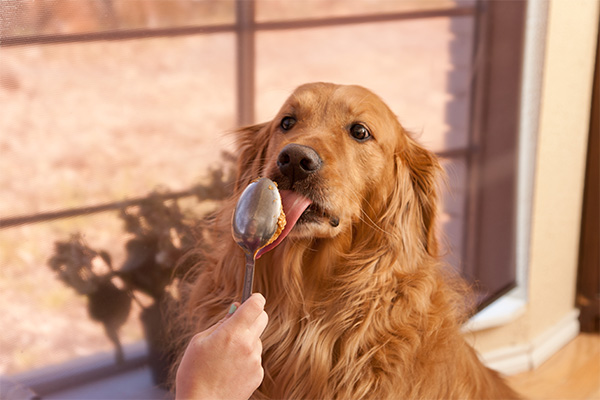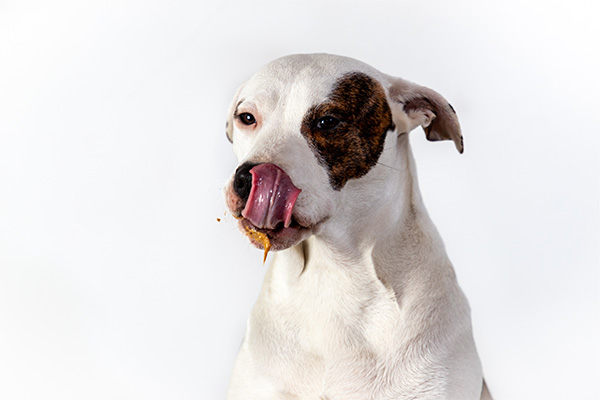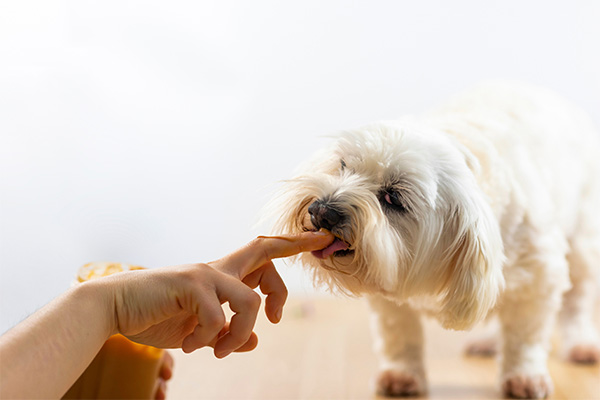It's no secret that dogs love peanut butter, and owners have widely used it to administer medications or just as a special snack. But what about almond butter? As dog owners look to diversify their pets' treats, almond butter emerges as a tantalizing alternative. However, it's essential to recognize how this change could impact your dog. Almond butter can be safe for dogs in moderation, but it's essential to know the specifics, such as the right types and amounts, to ensure it adds variety to your dog's diet without causing health issues.
In this post, we will explore the benefits and considerations of feeding almond butter to dogs, ensuring you can make informed choices about incorporating this nut butter into your pet's regimen.
Can Dogs Eat Almond Butter
Dogs can enjoy almond butter in moderation, but it's important to note that not all almond butter is suitable for them. Choose almond butter without additives, especially xylitol, as it is toxic to dogs. It is best to make your own almond butter or natural almond butter with a single ingredient: roasted almonds. Natural, unsweetened almond butter can be a beneficial source of protein and healthy fats for dogs, making it a delicious treat. Introduce new foods slowly and watch for any digestive issues or allergic reactions. Keep an eye on the calorie content, as too much can cause weight gain. Always consult a veterinarian before adding new foods to your dog's diet.
Health Benefits Of Dogs Eat Almond Butter

Protein Content
Almond butter is a rich source of protein, which is essential for the overall health and development of dogs. Protein is vital for muscle growth and repair, as it supports the formation of new skin cells, muscle tissue, and hair. Adequate protein intake helps maintain a dog’s muscle mass, which is especially important for active dogs and those recovering from injuries. Protein also aids in the production of enzymes and hormones, which are essential for numerous bodily functions.
Healthy Fats
Almond butter contains healthy fats, including monounsaturated fats, which are beneficial for your dog’s coat and skin. These fats help make the coat shinier and healthier by providing essential fatty acids that support skin health and cellular structure. Healthy fats are vital for supporting brain function and sustaining energy levels. The inclusion of omega-3 and omega-6 fatty acids helps reduce inflammation and supports joint health, which is particularly beneficial for older dogs or those with arthritis.
Vitamins and Minerals
Almond butter is rich in essential vitamins and minerals that promote your dog's well-being. Vitamin E, a potent antioxidant in almond butter, shields cells from free radical damage, bolstering the immune system and enhancing skin health. Almond butter also supplies magnesium, crucial for nerve and muscle function and supporting a robust immune system. Moreover, it includes calcium and phosphorus, vital for strong bones and teeth.
Energy Boost
The healthy fats in almond butter serve as a good source of energy, particularly beneficial for active dogs. These fats provide a concentrated source of calories, which can help sustain energy levels during prolonged periods of activity or exercise. For working dogs, those involved in agility training, or simply very active pets, a small amount of almond butter can help meet their increased energy needs. However, balancing this with their overall calorie intake is important to prevent weight gain.
The Downside Of Giving Your Dog Almond Butter

High-Fat Content
Almond butter is high in fats, which, while beneficial in moderation, can lead to several health issues if consumed in excess. Foods high in fat can contribute to weight gain and obesity in dogs, increasing the risk of health issues like diabetes, heart disease, and joint problems. Overconsumption of fat can also trigger pancreatitis, a serious condition involving inflammation of the pancreas.
Caloric Density
Almond butter is calorically dense, meaning even a small amount can significantly increase your dog's daily caloric intake. This can disrupt their balanced diet and lead to weight-related issues, particularly in less active dogs or those prone to obesity. It's crucial to monitor portion sizes and adjust their diet to accommodate extra calories from almond butter.
Risk of Allergic Reactions
Certain dogs may have allergies to almonds or other nut butters. Like peanut allergies, allergy symptoms of almond butter can include itching, swelling, gastrointestinal upset, or more severe reactions like anaphylaxis. Introduce new foods slowly and observe your dog closely for any signs of an allergic reaction.
Digestive Issues
Almond butter may be hard for some dogs to digest. Too much almond butter can cause gastrointestinal issues like diarrhea or vomiting. This is especially true if they consume a large quantity or are not accustomed to high-fat foods. Ensuring almond butter is introduced slowly and in small amounts can help mitigate this risk.
Potential for Harmful Additives
You should avoid feeding your pet almond butter that contains flavoring, salt, oil, and added sugar, especially sweetened almond butter with artificial sweeteners. Many commercial almond butters contain sugar, salt, and xylitol additives. Xylitol poses a significant danger as it is highly toxic to dogs, potentially causing severe hypoglycemia (low blood sugar) and liver failure. Always verify the ingredients list to ensure that almond butter is free of harmful additives.
Risk of Choking or Blockage
Chunky almond pieces in almond butter can pose a choking hazard or lead to intestinal blockages, particularly in smaller dogs. It's best to choose creamy almond butter instead of chunky.
How to Introduce Almond Butter into Your Dog’s Diet

Starting with a small amount helps determine if your dog can tolerate almond butter without experiencing digestive upset or allergic reactions. Begin by offering your dog a small lick of almond butter from a spoon or your finger. Monitor their response in the following hours. Look for signs such as excessive drooling, vomiting, diarrhea, or itching, which could indicate an allergy or intolerance. If your dog exhibits any signs of discomfort or allergic reactions, stop feeding them almond butter and seek advice from your veterinarian.
Gradually increasing the amount of almond butter allows your dog’s digestive system to adjust and helps prevent overconsumption, which can lead to health issues such as pancreatitis or weight gain. If your dog handles the small amount well, you can gradually increase the portion over several days. For example, a teaspoon-sized serving for a medium-sized dog is generally sufficient as an occasional treat. You can include almond butter in a toy, blend it with your dog’s regular food, or use it as an ingredient in homemade dog treats. These methods can make the almond butter more appealing and beneficial as a high-value reward during training sessions.
FAQs
Can almond butter cause allergies in dogs?
Yes, some dogs can be allergic to nuts, including almonds. Symptoms of an allergic reaction may include itching, swelling, gastrointestinal upset, or, in severe cases, anaphylaxis. Introduce almond butter gradually and watch for any negative reactions.
How much almond butter can I give my dog?
The quantity should be adjusted based on your dog’s size, weight, and overall diet. Typically, a small amount like a teaspoon is suitable for medium-sized dogs. Almond butter should be given occasionally as a treat, not regularly, to prevent excessive calorie intake and potential weight gain.
Can I use almond butter to give my dog medication?
Yes, almond butter can be a useful tool for administering medication, as its texture and flavor can help mask the medicine's taste. Ensure the almond butter used is plain and free from harmful additives.
